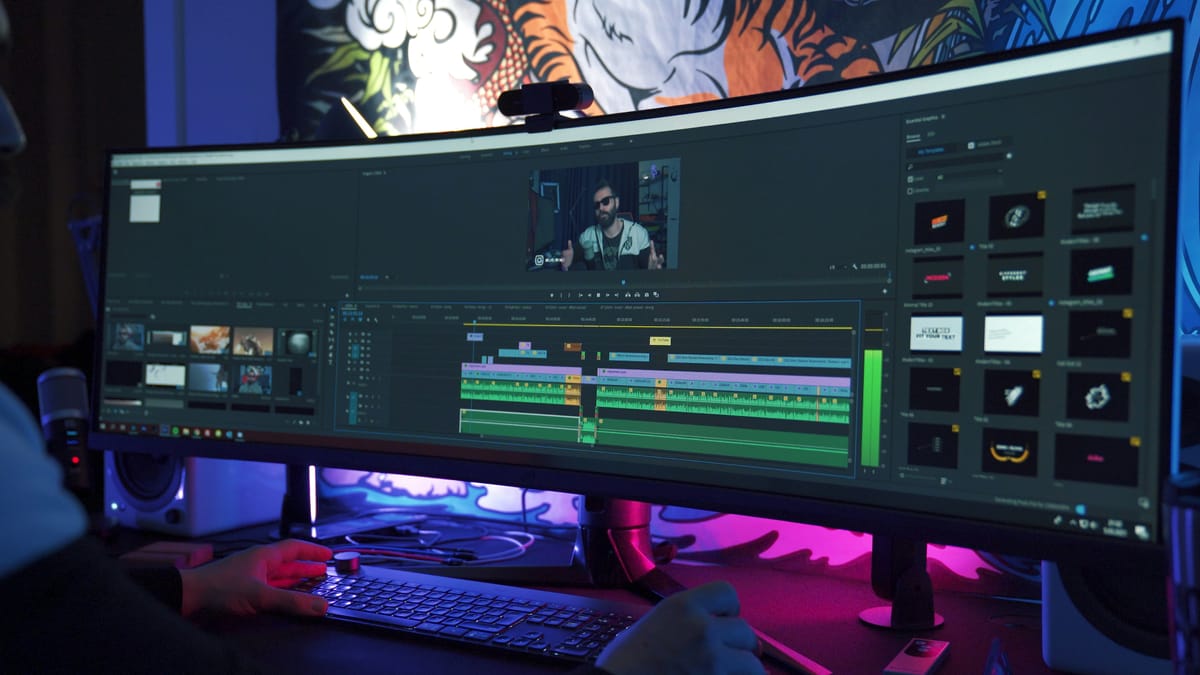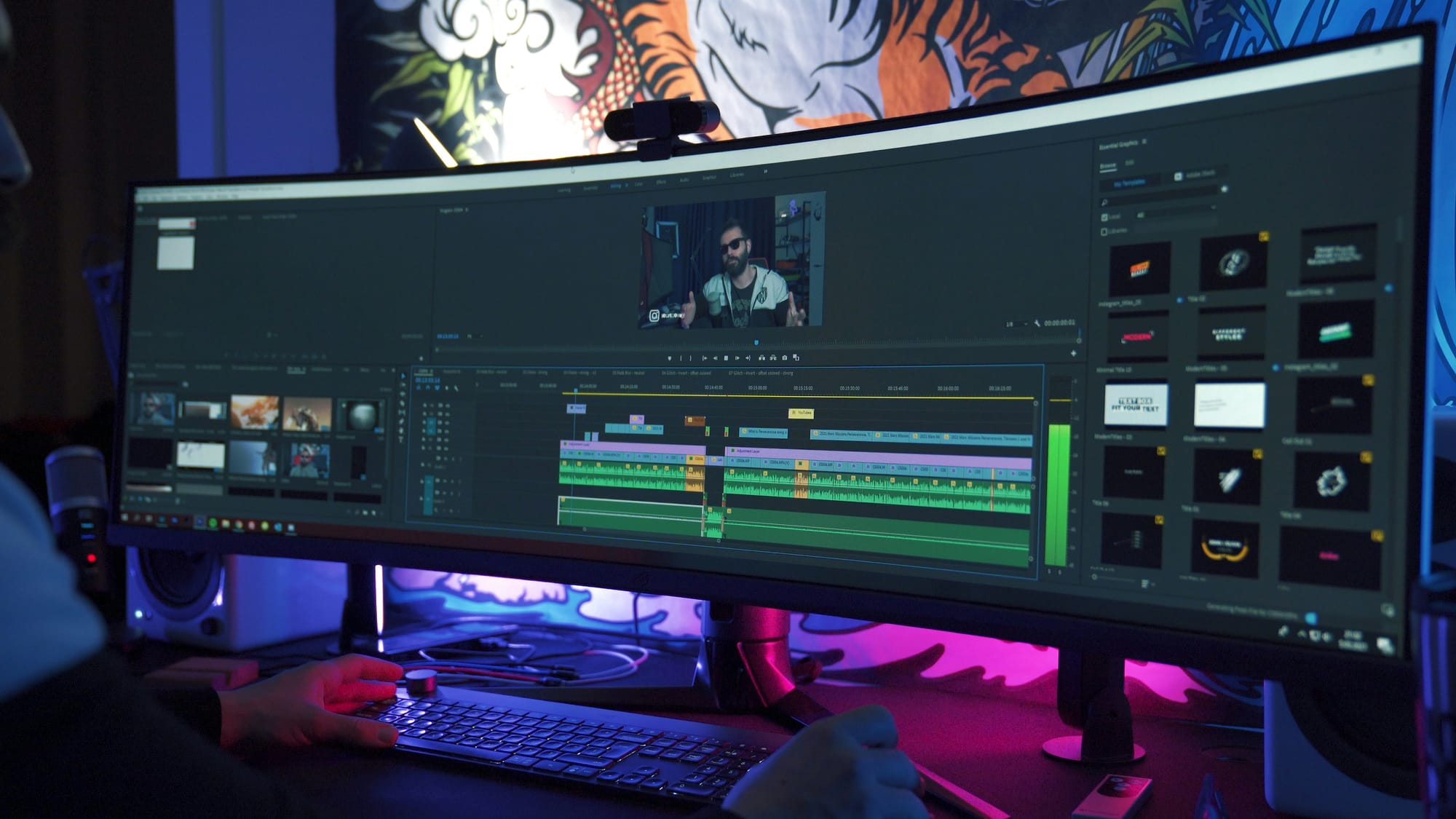Top Tips for Managing Editors in a Video Editing Firm


As a managing editor within a video editing firm, are you seeking to elevate your skill set and enhance the efficiency of your team?
This exploration will delve into the primary responsibilities associated with the role of a managing editor, underscore the significance of efficient management practices within a video editing firm, and outline the critical skills essential for achieving success in this capacity.
Ranging from the establishment of coherent expectations and guidelines to adeptly addressing team conflicts and overcoming challenges, invaluable insights will be provided to assist you in excelling within your role.
Embark on a journey to uncover the strategies and approaches that can lead you to become a distinguished managing editor within the dynamic video editing industry.
Key Takeaways:
As a managing editor, it is crucial to have clear expectations and guidelines in place to ensure a smooth and efficient workflow within a video editing firm.
Effective communication within the team is essential for successful project completion and client satisfaction.
Utilizing project management tools and continuously investing in professional development can greatly enhance a managing editor's role in a video editing firm.
Top Tips for Managing Editors in a Video Editing Firm
Managing editors at a video editing firm hold a vital position in supervising the entirety of the video production process. Their responsibilities include ensuring the high quality of video editing, collaborating with project managers and clients, and utilizing tools such as Google LLC services, Excel, and Post-Its to facilitate an efficient workflow.
Understanding the Role of a Managing Editor
The role of a managing editor within a video editing firm involves overseeing video editors to ensure that the final video products adhere to brand guidelines and meet the expectations of the target audience. This individual collaborates closely with project managers to gain a comprehensive understanding of the specific requirements associated with each video editing project.
By supervising the workflow and providing constructive feedback to video editors, the managing editor ensures that the content produced is engaging, of high quality, and aligns with the overarching strategic vision of the organization. Balancing creative input with practical considerations is a key aspect of their responsibilities, as they strive to deliver videos that resonate with the intended audience.
Through effective collaboration with project managers and video editors, the managing editor cultivates a collaborative environment that is dedicated to the creation of compelling visual content.
Importance of Effective Management in a Video Editing Firm
Efficient management within a video editing company is essential for maintaining uniformity and excellence across all video projects. This is crucial for adhering to brand specifications and fulfilling client requirements.
Strategic resource allocation, streamlined workflow management, and effective communication among team members are key components in ensuring that the creative vision remains intact throughout the editing process. By establishing clear objectives and timelines, managers facilitate the team in adhering to schedules and delivering projects punctually, while also upholding the brand's standards.
Furthermore, effective management practices entail cultivating a conducive work environment that fosters creativity, collaboration, and continuous enhancement. This nurturing atmosphere ultimately contributes to the development of high-caliber videos that resonate with the target audience.
Key Skills Required for Managing Editors
The role of a successful managing editor necessitates a diverse skill set, encompassing strong leadership qualities, exceptional communication abilities, and adeptness in offering constructive feedback to video editors.
Possessing effective leadership skills is imperative for managing editors in order to motivate and inspire their team of video editors while upholding a positive work environment. Clear and precise communication is vital to ensure that project objectives and expectations are effectively conveyed and comprehended by all team members. The capacity to provide constructive feedback in a supportive manner plays a pivotal role in facilitating the growth and enhancement of video editors' skills. Through the cultivation of robust communication channels and the provision of guidance, managing editors can augment the overall productivity and quality of video editing endeavors.
Setting Clear Expectations and Guidelines
Establishing clear expectations and guidelines is imperative for managing editors to ensure alignment among team members and efficient project completion.
When commencing a video editing undertaking, having a well-defined scope of work is crucial in averting misunderstandings and delays. By delineating expectations from the outset, editors can gain a comprehensive understanding of the project requirements, timelines, and anticipated results.
Efficient communication between managing editors and project managers plays a pivotal role in conveying these guidelines to the editing team. This collaborative effort guarantees a seamless editing process, adherence to deadlines, and delivery of a final product that resonates with the client's vision.
In the dynamic realm of video production, clarity and structure serve as fundamental pillars for achieving premium-quality outcomes.
Ensuring Efficient Communication within the Team
Effective communication within the video editing team is essential for the seamless progression of projects, allowing project managers and editors to collaborate efficiently.
The managing editor assumes a pivotal role in promoting this effective communication by acting as the primary liaison for team members. Through the facilitation of regular team meetings, the managing editor ensures that all editors are kept abreast of project updates and deadlines, thereby fostering a cohesive workflow. Utilizing communication tools such as project management software or messaging platforms, the managing editor can streamline the process of information sharing and feedback loops within the team. The establishment of clear and concise communication channels by the managing editor serves to reduce misunderstandings and delays, ultimately improving productivity and project outcomes.
Implementing Quality Control Measures
Enforcing rigorous quality control measures is an essential duty for managing editors, ensuring that all raw footage undergoes refinement to adhere to the highest standards.
To accomplish this objective, managing editors may establish precise guidelines for editors to adhere to, encompassing aspects such as maintaining uniformity in color grading, audio levels, and visual effects throughout the video editing process. Regular feedback sessions can be scheduled to evaluate the progress of each editor and offer constructive feedback for enhancement.
Instituting a comprehensive review process for the final video edits prior to publication can aid in identifying any errors or inconsistencies that might have been overlooked during the initial editing phases. By concentrating on these processes involving editors and raw footage, managing editors can enhance the overall quality of the produced video content.
Utilizing Project Management Tools
Managing editors can derive significant advantages from the utilization of project management tools such as Excel, Post-Its, and Google LLC services to effectively monitor deadlines and streamline workflow. These tools play a crucial role in efficiently organizing tasks, delegating responsibilities, monitoring progress, and fostering communication within the editing team.
Through Excel spreadsheets, editors can develop comprehensive timelines and allocate resources in a strategic manner. Post-Its serve as convenient tools for jotting down quick notes or reminders related to specific editing tasks. Google LLC services, including Google Docs and Google Sheets, enable real-time collaboration among team members, facilitating seamless sharing of project updates and feedback.
By leveraging the capabilities of these tools, editing teams can enhance productivity, minimize errors, and ensure the punctual delivery of high-quality video projects.
Managing Editor's Role in Client Interaction
The managing editor assumes a crucial role in client engagement by ensuring accurate communication of feedback and alignment with client expectations throughout the video editing process. This necessitates maintaining transparent lines of communication with clients to promptly gather their input, preferences, and revisions. Managing editors must demonstrate exceptional interpersonal skills to effectively address concerns or requests, thereby fostering a collaborative environment. It is incumbent upon them to provide feedback in a constructive and professional manner, guiding clients on enhancing their video content while upholding their vision.
Through active listening and the provision of clear, actionable feedback, managing editors play a pivotal role in securing client satisfaction and project success.
Handling Time Management and Deadlines
Effective time management and meeting deadlines are essential components of a managing editor's responsibilities, guaranteeing the timely completion of video editing projects.
The coordination between managing editors and project managers is fundamental in optimizing the workflow of video editing projects. Open and transparent communication channels between these key stakeholders are instrumental in establishing achievable timelines and identifying priorities for different project deliverables. Through the development of a comprehensive project plan with designated checkpoints and milestones, both the managing editor and project manager can effectively allocate resources, thereby ensuring the punctual delivery of projects without compromising the quality of the final output.
Dealing with Team Conflicts and Challenges
The management of team conflicts and challenges represents an inevitable aspect of the role assumed by a managing editor, necessitating the possession of robust conflict resolution skills in order to sustain a productive video editing environment.
A prevalent challenge encountered by video editing teams pertains to the existence of differing creative visions among team members. When individuals possess distinct backgrounds and artistic preferences, conflicts may emerge concerning the overall tone and style of the project. Such conflicts can manifest in disagreements related to editing choices, pace, transitions, and visual effects, with tight deadlines and high-pressure circumstances exacerbating tensions among team members.
Competent managing editors possess the ability to mitigate these conflicts by cultivating open channels of communication, promoting compromise, and ensuring that all team members perceive themselves as being heard and appreciated throughout the editing process.
Continuous Learning and Professional Development
Continuous learning and professional development are essential for managing editors to remain abreast of the latest trends and technologies in the video editing industry.
By dedicating time and effort to expanding their knowledge and refining their skills, managing editors can not only stay abreast of the rapid advancements in editing software and techniques but also maintain a competitive edge.
Through ongoing education, these professionals can explore innovative methods to streamline workflows, optimize post-production processes, and artistically enhance visual storytelling. This sustained commitment to learning equips managing editors with the tools and insights necessary to effectively lead their teams and drive forward-thinking strategies that push the boundaries of video editing excellence.
Frequently Asked Questions
What are some top tips for managing editors in a video editing firm?
Some top tips for managing editors in a video editing firm include setting clear expectations, providing ongoing training and feedback, promoting collaboration, establishing a consistent workflow, staying organized, and prioritizing communication.
How can setting clear expectations help in managing editors?
Setting clear expectations helps manage editors by providing them with a clear understanding of their roles and responsibilities. It also helps avoid misunderstandings and ensures everyone is on the same page.
Why is ongoing training and feedback important for managing editors?
Ongoing training and feedback are important for managing editors as it helps them improve their skills and stay updated with industry trends. It also shows that the company values their growth and development.
How can promoting collaboration benefit a video editing firm?
Promoting collaboration among editors can benefit a video editing firm by fostering a sense of teamwork, encouraging creativity and problem-solving, and ultimately leading to better quality work.
Why is establishing a consistent workflow essential for managing editors?
Establishing a consistent workflow is essential for managing editors as it helps them stay organized, meet deadlines, and maintain quality standards. It also ensures a smooth and efficient editing process.
How can effective communication contribute to managing editors in a video editing firm?
Effective communication plays a crucial role in managing editors as it helps in coordinating tasks, addressing any issues or concerns, and maintaining a positive work environment. It also ensures that everyone is on the same page and working towards the same goals.